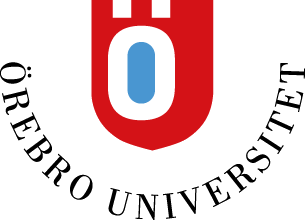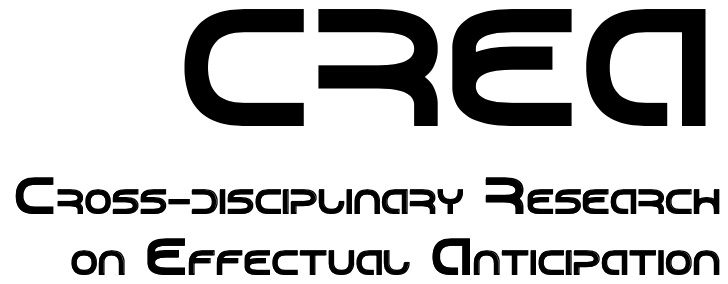
Humans Meet Artificial Intelligence

 |
Anticipation and Anticipatory Systems:
Humans Meet Artificial Intelligence |
 |
| The first CREA international symposium |
[ CREA Home ]
The first CREA international symposium was held at Örebro University (Örebro, Sweden) on June 10-13, 2019. The theme of the symposium was "Anticipation and Anticipatory Systems: Humans Meet Artificial Intelligence". The symposium included ten keynote talks, eleven presentations of contributed papers, a collective anticipatory lab led by Riel Miller, and an open evening event featuring a Human-AI jazz concert and a public debate.

The symposium was highly cross-disciplinary, and it saw the active participation of around eighty people coming from disciplines as diverse as philosophy, sociology, psychology, cognitive science, literature, economics, neurosciences, artificial intelligence and robotics. The combination of the variety of points of views and the open mindedness and intellectual curiosity of all participants resulted in a vibrating atmosphere, lively discussions and overall an enriching experience.
Below, you will find videos of the keynote talks and of the public event, as well as pointers to abstracts of all the contributions. You may also want to browse the "Memory Slices" kindly made available by Anna Strasser. We hope that this material will help others to share some of the excitement and intellectual growth that we have experienced in these days.
Luis de Miranda and Alessandro Saffiotti
Symposium organizers
|
Title:
Mapping anticipation
Abstract: 
|
|
Title:
"It's a Poor Sort of Memory that Only Works Backwards":
Anticipation as the Essence of Cognition
Abstract: 
|
|
Title:
Anticipatory Science-Fiction to Foster Ethical Debates on AI and Robotics
Abstract: 
|
|
Title:
Stories as Anticipatory Models
Abstract: 
|
|
Title:
AI for Anticipation: a Possible Means, a Necessary Purpose
Abstract: 
|
|
Title:
Synthetic Anticipation: On the Evolution of Wild Meaning
Abstract: 
|
|
Title:
Revisiting Hippocrates' "On Ancient Medicine" to Inform Natural and Artificial Anticipation
Abstract: 
|
|
Title:
Perceptions from Inside Out
Abstract: 
|
|
Title:
Networked Anticipatory Systems
Abstract: 
|
|
Note:
Remote presentation
Title: Indigenous Knowledges, Anticipation and Artificial Intelligence Abstract: 
|
|
Synopsis:
A duo of a human pianist and an AI drummer will perform jazz
tunes. This experiment will show you how humans and AI can understand
each other and collaborate in a harmonious way.
Introduction: Luis de Miranda Artists: Peter Knudsen (human pianist), Oscar Thörn (AI programmer), Alessandro Saffiotti (AI expert), Peter Fogel (musicologist) |
|
Synopsis:
Everyone knows that the future does not exist. No one can go
there. Evidence cannot be collected. Yet when people think about the
future they bring tomorrow to life. Humans use their imaginations to
invent the future in the present. Why do we use this ability? How do
we do it? Does how and why we imagine the future change depending on
circumstances, intention, volition? In this talk Riel Miller will
discuss the emerging Discipline of Anticipation and the capability
that is associated, called Futures Literacy. He will explore why
improving our capacity to `use-the-future' for different reasons, in
different ways, in different contexts, is an essential skill for
humanity to appreciate and make-sense of our inherently complex
emergent universe.
Introduction: Luis de Miranda Speaker: Riel Miller, Head of Futures Literacy, UNESCO |
|
Topic:
"Can Artificial Intelligence Help us Anticipate the Future?"
Moderator: Luis de Miranda Participants (left to right): Carme Torras (Technical University of Catalonia, Spain), Sarah Dillon (Cambridge University, UK), Amy Loutfi (Örebro University, Sweden), Fabian Labra-Spröhnle (Nelson Marlborough District Health Board, New Zeeland), Riel Miller (Head of Futures Literacy, UNESCO) |
|
Title:
Anticipation: Conscious and Unconscious Brain Processes
Abstract: 
|

|
|
Title:
Model-Based Reinforcement Learning and Acting for Reasons
Abstract: 
|

|
|
Title:
Who can predict Faster? Human or Robot?
Abstract: 
|

|
|
Title:
A Prehistory to Prescience: The Rational Recollection of Futurity
Abstract: 
|

|
|
Title:
Do human anticipation abilities have a special feature?
Abstract: 
|

|
|
Title:
Reverse Hierarchy Theory and the Role of Kinematic Information in
Semantic Level Processing and Intention Perception
Abstract: 
|

|
|
Title:
Educational Imaginaries of Technology
Abstract: 
|

|
|
Title:
Proactive Eye-Gaze in Human-Robot Interaction
Abstract: 
|

|
|
Title:
Some Notes on Anticipation in AI and Robotics
Abstract: 
|

|
|
Title:
Anticipation and Planning in Human-Aware Robotics
Abstract: 
|

|
|
Title:
Effectual Anticipation: Analytical, Dialectical and Crealectical Moments
Abstract: 
|

|
[ CREA Home ]
This Symposium was supported by Vetenskapsrådet - the Swedish Research Council - as well as by Örebro University through its 20-year jubileum program. CREA is part of Örebro University's larger effort to promote multidisciplinary research in AI.

Website hosted by

Last updated on August 14, 2019 by A. Saffiotti